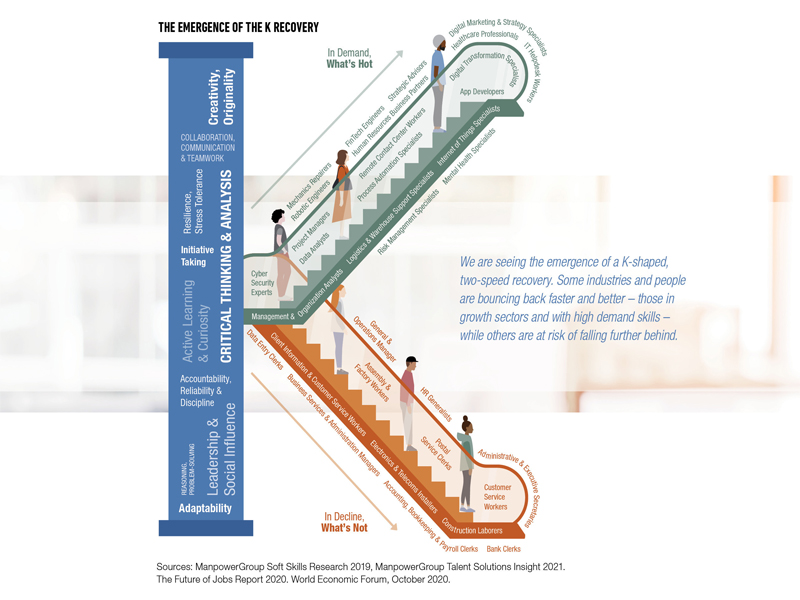Companies that are digitising the most are creating the most jobs, but upskilling fast enough continues to be a challenge, confirmed ManpowerGroup.
The Covid-19 pandemic has led companies to rapidly accelerate digitisation plans, according to its latest research of 26,000+ employers in more than 40 countries. In fact, 38% are speeding up digitisation, while just 17% have put plans on hold. Additionally, the majority of those firms (86%) that have accelerated digitisation will add roles; compared to just 11% of employers who plan to reduce or hold their automation plans.
GLOBAL COMPARISONS
The impact of the pandemic on digitisation differs significantly around the world, noted the report. Employers in Germany, Austria, Japan and Italy report automation has accelerated most as the result of Covid-19; while those in the US, France and the UK are least likely to have sped up digitisation.
Organisations that are digitising most are also planning significant increases in HR headcount (net increase of +15%). This is a huge shift from back in 2018 when employers to see no growth in HR headcount. Covid-19 has shifted HR priorities for the long-term, with HR leaders viewing employee health and wellbeing as the most important priority. In fact, 63% expect to put this at the top of their agenda for 2021 and beyond.

MORE UPSKILLING & RESKILLING NEEDED
When skills needs are changing faster than ever, organisations need refreshed workforce development strategies to attract, develop, engage and retain the best talent, according to the company. Manpower’s study also noted a K-shaped, two-speed recovery.

One year into the pandemic though, “we are seeing the emergence of a K-shaped recovery”, commented Jonas Prising, ManpowerGroup Chairman & CEO. “Some industries and people are bouncing back faster and better; while others are at risk of falling further behind.”
However, “our research reinforces that digital transformation is occurring at an accelerating pace”, Prising added. “Today, technology breakthroughs are driving mass vaccination programmes; workforce transformation and flexibility; plus a call for better work-life blend; more upskilling; and greater autonomy over how, when and where work gets done.”
He believes that “helping people to upskill and reskill for in-demand roles in this skills revolution remains the defining challenge of this decade”.
Employers worldwide have reported a severe shortage of qualified talent. Read more here.





































